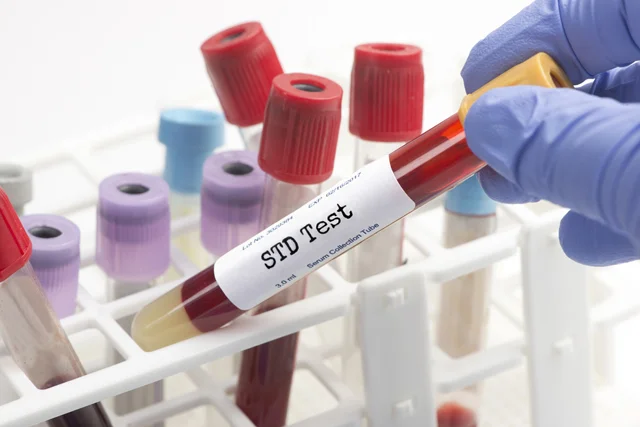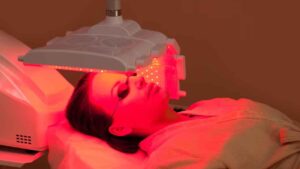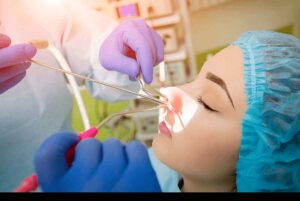STD Testing Singapore: Which Tests Do You Need?

Sexually transmitted diseases (STDs) may be common but you cannot afford to take any of them lightly. Every STI requires timely diagnosis and treatment to prevent complications.
Here is where regular STD testing comes into the picture. It is crucial for sexual health, especially if you are sexually active or have multiple partners. Read more: https://www.artisanhealthclinic.sg/services/sexual-health/std-testing.
STD testing in Singapore is widely accessible, with various providers offering comprehensive services. But what does STD testing actually involve? And what are the specific types of tests you may need? Or how do you even prepare for the tests?
Those are the key questions we will be answering on this page. Keep reading for the answers.
What Is STD Testing and What Typically Happens?
STD testing involves evaluating samples such as blood, urine, or swabs to determine whether an individual has a sexually transmitted infection. Tests can be done for bacterial, viral, or parasitic infections.
Typically, the tests focus on diseases like chlamydia, gonorrhea, syphilis, HIV, and hepatitis. The testing process usually begins with a discussion of your symptoms, sexual history, and risk factors.
This helps your provider to determine which tests are appropriate for you. Depending on the type of infection suspected, testing may involve collecting a urine sample, taking blood from a vein, or swabbing affected areas like the throat, anus, or genital region. Top clinics in Singapore ensure confidentiality and a supportive environment during testing to make it comfortable to undergo screening without fear of stigma.
Which Test is recommended for STD?
The type of STD tests recommended depends on your unique circumstances, such as sexual activity, symptoms, and possible exposure to an STD. Here’s a breakdown of different scenarios and which tests are advised:
- Routine Screening: Routine STD screening is recommended for sexually active individuals, especially if they are under 25 years of age or have multiple sexual partners. Typical tests include:
- Chlamydia and Gonorrhea: These bacterial infections are common and can be asymptomatic. Annual screening is recommended for sexually active individuals under 25, especially women.
- HIV: A one-time HIV screening is suggested for individuals aged 13 to 64. Routine screening every 6 months may be advisable if you engage in high-risk sexual behaviors.
- Syphilis, Hepatitis B, and Hepatitis C: Pregnant women are screened to ensure the health of both mother and baby. Testing is also advised for those with increased exposure risks.
- High-Risk Sexual Behavior: People engaging in high-risk sexual behavior, such as having unprotected sex with multiple partners, should undergo more frequent testing. Recommended tests include:
- HIV: Testing every 3 to 6 months to monitor exposure.
- Syphilis, Chlamydia, and Gonorrhea: Regular testing every 3 to 6 months if engaging in high-risk activities like having multiple partners or using intravenous drugs.
- Hepatitis B and C: Screening may be needed for those with a history of injecting drugs or unprotected anal sex.
- Symptoms of an STD: If you notice symptoms like unusual discharge, sores, itching, or discomfort, the following tests may be recommended:
- Painful Sores or Blisters: Herpes Simplex Virus (HSV) testing can confirm whether symptoms are due to herpes.
- Discharge or Burning Sensation: Chlamydia and Gonorrhea tests can help identify these common bacterial infections.
- Non-itchy rash or Painless Sores: This could indicate Syphilis and a blood test can confirm the diagnosis.
- Pregnancy: Pregnant women are advised to undergo comprehensive testing, including:
- HIV, Syphilis, Hepatitis B, and Chlamydia: Early detection ensures both the mother’s and baby’s health are protected during and after pregnancy.
- Exposure to an STD: If you believe you’ve been exposed to an STD:
- HIV: Testing should be done soon after the potential exposure and repeated at specific intervals—6 weeks, 3 months, and 6 months—to rule out the infection.
- Syphilis, Gonorrhea, and Chlamydia: Tests should be done based on your provider’s recommendations, as different STDs have different incubation periods.
- Partner Diagnosed with an STD: If your partner is diagnosed with an STD, you should be tested as well, even if you have no symptoms. Recommended tests depend on the STD involved for example;
- Chlamydia, Gonorrhea, Syphilis, or HIV are the most commonly tested in these situations.
How Do I Prepare Myself for an STD Test?
Preparing for an STD test is simple, but it depends on the type of test being conducted. Here are some tips to help you prepare effectively:
- Blood Tests: In general, blood tests for STDs do not require any special preparation. You do not need to fast or take any additional measures.
- Urine Tests: For tests like those for Chlamydia and Gonorrhea, it is important to avoid urinating at least an hour before the test. This is done to ensure that the sample collected is sufficient for accurate detection.
- Swab Tests: Swab tests may involve samples from the genital area, throat, or rectum. Before a vaginal swab test, you should avoid using any vaginal creams or douches for at least 24 hours. This helps in getting an accurate result without contamination.
Apart from physical preparation, mental preparation is equally essential. It’s normal to feel anxious or worried about getting tested.
You might fear the results or feel embarrassed. If this is the case, try to talk to a trusted friend or family member about your feelings beforehand.
Sharing your concerns can reduce some of the anxiety you may experience. You can also consider talking to a counselor or mental health professional to help process your feelings during this time. Knowing your sexual health status is important, and being emotionally prepared for any outcome will make the experience much less stressful.
Wrapping Up
Getting an STD test in Singapore is a straightforward process but one that can greatly safeguard your sexual health. Remember, regular testing is key to maintaining not only your health but also the health of your partners.
So, don’t let fear or embarrassment keep you from taking this important step toward a healthier future. Ready to know your status anonymously? Why not call or visit us today to schedule an assessment? Details below;
The Artisan Health Clinic | Health Screening | STD Testing | HIV Testing Singapore
290 Orchard Rd, #07-01C Paragon Medical Suites,
Singapore 238859
+65 8129 8877







